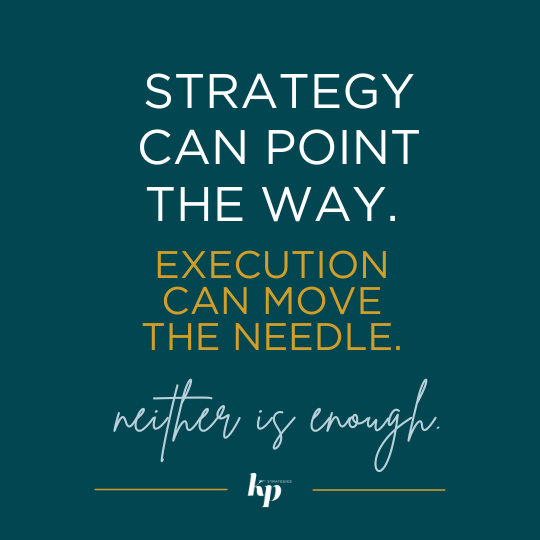
Strategy can point the way. Execution can move the needle.
But in today’s hyper-competitive world, neither is enough.
If you’re not intentionally shaping culture, you’re leaving performance—and potential—on the table.
According to Bain & Company, 70% of business leaders cite culture as their greatest source of competitive advantage. Why? Because culture is what makes strategy real. It’s the invisible force that determines how things actually get done when no one’s watching. It influences decisions, drives behavior, and builds—or breaks—trust.
You can have the best growth plan on paper, but if your culture doesn’t support it, you won’t execute. At best, you’ll tread water. At worst, your strategy will implode under the weight of misalignment, resistance, or disengagement.
Purpose is the Heartbeat of Culture
High-performing cultures don’t happen by accident. They’re anchored in purpose.
Purpose is more than a feel-good tagline. It’s a rallying cry. It answers the question: Why do we exist beyond profit?
Consider these examples:
- Cardinal Health unites teams around improving lives by blending technology and healthcare.
- Cognizant reimagines what’s possible for clients and communities by leading with innovation.
- Fiserv focuses on excellence and delivering real value through targeted innovation.
These aren’t just mission statements—they’re operating systems. They shape hiring decisions, customer interactions, investments, and how teams show up every day.
Culture Can Accelerate—Or Sabotage—Strategy
We’ve seen it time and again. Companies like Southwest Airlines and the New England Patriots built legacies by embedding culture into their DNA. On the other hand, cultural breakdowns at Wells Fargo and Volkswagen turned into cautionary tales, where misaligned incentives and ignored warning signs cost billions—and reputations.
The CEO Imperative
As a CEO or senior leader, you set the tone.
You don’t just influence culture—you are the culture.
If you’re not proactively assessing it, shaping it, and aligning it with strategy, then you’re at risk of letting your culture drift—and drift always leads away from excellence.